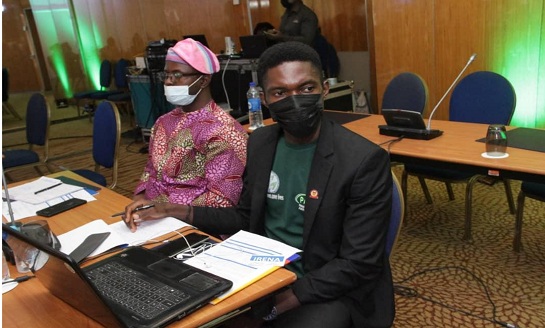
Climate and Sustainable Development Network (CSDevNet) has called for more concerted efforts at liberalizing access to renewable energy for Nigerians.
The call was made by Lucky Abeng, CSDevNet’s Head of Admin at a validation workshop organized by the Federal Ministry of Environment (FME) through the Department of Climate Change (DCC) with support from the International Renewable Energy Agency (IRENA).
The workshop which held in Abuja on the 10th of May 2021 validated Nigeria’s Energy Statistics as well as unveiled the work undertaken by IRENA on enhancing Nigeria’s Energy Statistic as part of its support to assist Nigeria in updating its Nationally Determined Contributions (NDC).
It conveyed various stakeholders from Ministries, Departments and Agencies (MDAs) such as Agriculture, Industry, Trade and Investment, National Emergency Management Agency, Environment, Science and Technology, Works and Housing, Water Resources, and Petroleum Ministries.
Also Civil Society and the media were represented by the Climate and Sustainable Development Network (CSDevNet) and Environ News, while other non-state actors included the Nigeria Bulk Electricity Company, Transmission Company of Nigeria, and Rural Electrification Agency REA. Some of the participants joined the validation workshop virtually.

The first session covered basics of why a country needs energy data, an overview of their collection, and an introduction to energy balance. Session two focused on the work undertaken on each of the fuel types, and essential background information required to produce energy statistics.
It was followed by a presentation of the Energy Balance for Nigeria for 2018, and then recommendation for enhancing energy statistics including the future MRV of NDC goals.
In her welcome address, Mrs. Halima Bawa-Bwari, Acting Director of Climate Change at the Federal Ministry of Environment stated that the validation workshop is a positive step towards understanding the current energy situation in the country which will help in Nigeria contributing to the global effort in combating Climate Change as agreed in COP 21 in Paris.
Globally 2/3 of all green house gas (GHG) comes from energy consumption. To ensure that the updated NDCs set out correct, fair, achievable policies and goals, it is imperative that we better understand and have knowledge of energy consumption and use in the country.
It is towards fulfilling this goal that IRENA, one of the implementing partners of the climate action, has supported the Federal Government of Nigeria.
The Lead Consultant, Duncan Millard, former International Energy and Statistics Advisor and Trainer, former Chief Statistician, Head of Energy Data Centre, Head of Training and Capacity Building and former Chief Statistician Department of Energy and Climate Change (DECC, UK) explained the methodology used in the research leading to the validation to include data source from the National Bureau of Statistics (NBS) and the Nigerian National Petroleum Corporation (NNPC).
Duncan further regretted the issues of the Global Pandemic which restricted and prevented him from traveling to Nigeria to interact with stakeholders for a robust data gathering as some MDAs did not respond to the call for data.
Reacting to Duncan Millard presentation and findings, some participants stressed the need for the informal sector to be captured in the findings and also bunkering activities of oil-producing region in Nigeria.
Participants highlighted the need for a detailed regional survey of biomass use. They suggested survey work should be complimented through enhanced cooperation between MDAs making data available in a useable way as they believe that biomass has the capacity for hybrid cars.
It was agreed that there is a need for the setting up of a working group (for Energy) to be headed by the Nigeria Electricity Regulation Commission (NERC) and comprising all participants at the validation workshop. The working group will address the issue.

